10 Construction Certifications and Where to Get Them
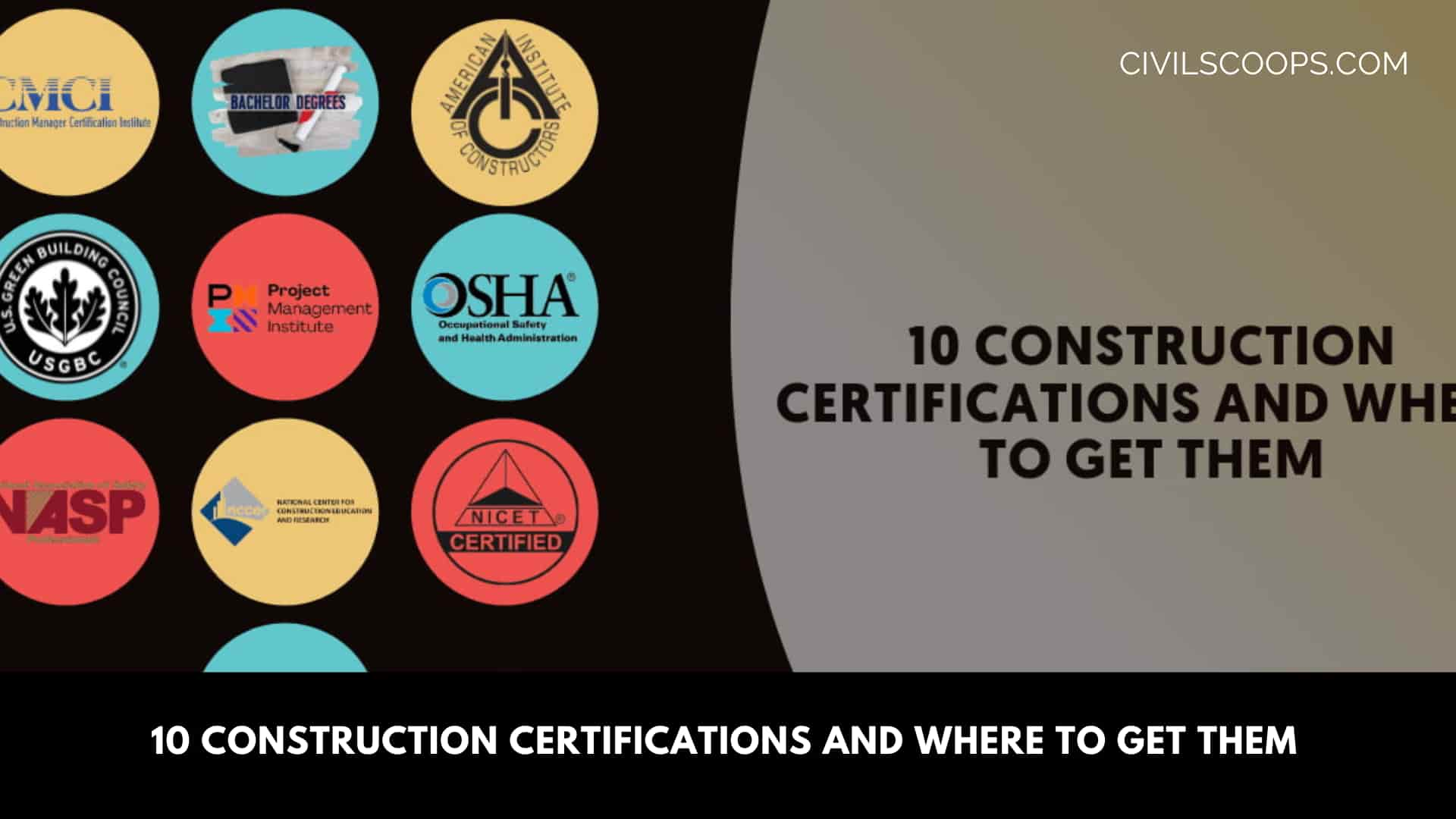
Table of Contents
Introduction of Construction Certifications
Certification can be a huge addition to a construction worker’s resume, as it tells an employer that you’re serious about keeping your qualifications and experience updated.
Beyond the possible career development opportunities, certifications are needed in certain cases. Both state and national building codes, as well as project developers, now need certified workers on job sites.
Certifications in the building sector favor those concerned: It elevates the individual’s best practices as well as the contractor’s brand and the consistency of services rendered.
Construction certifications are required because they demonstrate a high degree of expertise and expertise in the construction sector.
Also Read: 19 Different Types of Slabs in Construction | What Is a Slab | Types of Slabs
Construction Certifications That Will Enhance Your Career
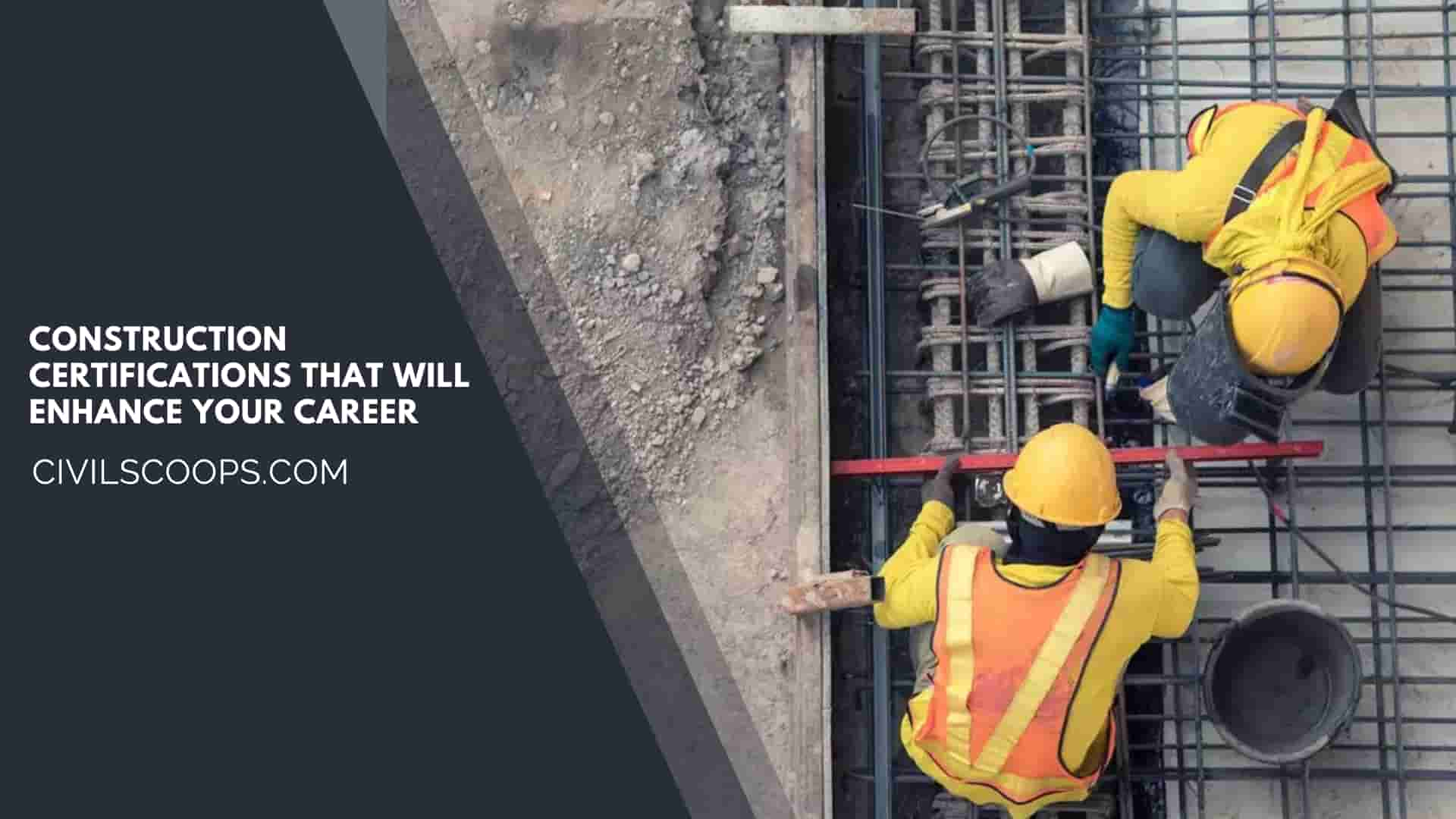
The list of Construction Certifications are as follows.
- Construction Management Certification Institute (CMCI)
- Bachelor’s Degree
- American Institution of Constructors (AIC)
- USGCB (U.S Green Building Council)
- Project Management Institute (PMI)
- Occupational Safety and Health Administration (OSHA)
- National Association of Safety Professionals (NASP)
- National Center for Construction Education & Research (NCCER)
- National Institute for Certification in Engineering Technologies (NICET)
- National Association of Corrosion Engineers (NACE)
1. Construction Management Certification Institute (CMCI)
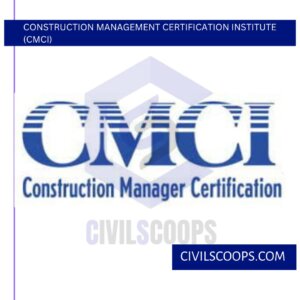
The Certified Construction Manager (CCM) is indeed a “gold standard of staffing certification for the construction management profession,” as per the Construction Management Association of America.
A construction manager certification distinguishes it from other construction managers since it demonstrates expertise and abilities.
CCM honors construction management practitioners who have reached the specified standard for construction management certification, which includes experience in that field, advanced qualifications, and an understanding of the CMAA (Construction Management of America).
CCMs offer technical services that use effective and reliable management approaches to prepare, design, and construct a project from start to finish. They also track and manage a project’s cost, efficiency, and timeline.
This award is a mark of professional achievement; CCM lets customers and managers understand that you are among the building company’s experts.
The CMCI Board of Governors (BoG) is made up of construction management experts and is independent of the CMAA.
Also Read: First Angle Projection Third Angle Projection Symbol (Orthographic Projection)
2. Bachelor’s Degree

These days, construction managers are most likely to hold a bachelor’s degree in materials construction, construction engineering, construction administration, or construction science.
A Bachelor’s Degree is the standard entry-level diploma, as per the Bureau of Labor Statistics.
3. American Institution of Constructors (AIC)
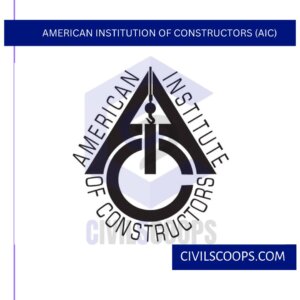
There are two tiers of qualification for the AIC’s Constructor Certification Program:
- Associate Constructor (AC).
- Certified Professional Constructor (CPC).
3.1. Associate Constructor (AC):
This is the initial standard of AIC approval. One such level is suitable for new graduates of a four-year Construction Management graduate program, as well as those moving from another field. Associate Constructors are those who have extensive knowledge and experience with building management.
ACs are valuable since they add integrity and agree to follow the AIC Code of Ethics, ensuring that they are both competent and responsible members of the industry.
The AC review consists of 300 numerous choices that are administered in two 4-hour shifts on the same day. The exam is given twice a year, throughout the spring and fall, from over 60 places around the world.
3.2. Certified Professional Contractor (CPC):
It is the AIC qualification program’s second and highest standard. The CPC is suitable for those with many years of project experience as well as those looking to advance their careers. CPCs have a validated seasoned person who is informed about project productivity and the usefulness of a project.
Certified Professional Contractors, including ACs, follow the AIC code of ethics. In the spring of 2016, the CPC moved to an online Computer Based Test. This qualification exam is given twice a year over a two-week cycle at hundreds of training locations.
4. USGCB (U.S Green Building Council)
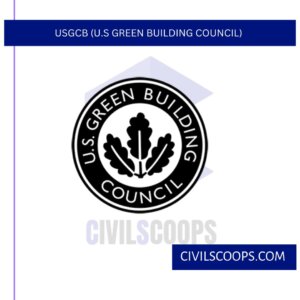
LEED seems to be the most commonly utilized green building ranking system in the world. It is suitable for all kinds of building projects and is internationally recognized as a sign of sustainability.
LEED certification offers a framework for developing highly functional and cost-effective green buildings. Along with their effect on homes, these certifications are very valuable. Buildings use energy, which produces waste and is costly to maintain.
Leeds green buildings are indeed the practice of planning, designing, and running buildings in order to achieve the following objectives:
- Reduce life cycle costs.
- Maximize occupant well-being and efficiency
- Make use of fewer resources.
- Reduce pollution and the harmful environmental effects.
Also Read: Civil Engineering Basic Knowledge
5. Project Management Institute (PMI)
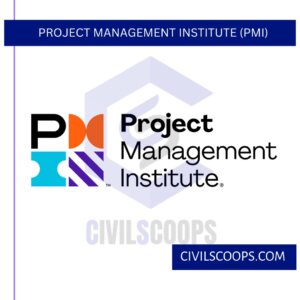
The Project Management Institute (PMI) provides eight construction certifications, but the Project Management Professional (PMP) credential is the most appropriate for seasoned construction project managers.
Doing a PMP has substantial benefits in terms of income and profit opportunities. According to the Earning Power Wage study findings, people with a PMP credential get a higher salary (20% higher on average) than those without a PMP certification.
PMP demonstrates that one understands and speaks the global vocabulary of project management. Finally, the PMP is advantageous because it connects you with specialists, organizations, and practitioners all around the globe.
6. Occupational Safety and Health Administration (OSHA)
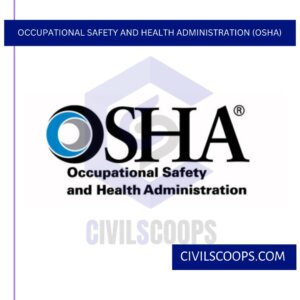
The Outreach Training Program offers occupational safety education to employees in order to educate them about workplace risks and their rights.
Since Outreach instruction does not meet the requirements for the particular position, employers are obligated to provide extra training for their employees on specific dangers of their job, as required by OSHA standards.
The Outreach Training Program is intended for employers because it teaches them how to stop, deter, recognize, and reduce occupational risks, rather than OSHA norms.
This software also provides an outline of OSHA content, including worker rights, employer obligations, and how to file a complaint.
There are two options available: a 10-hour training program and a 30-hour training program. Both provide a description of the hazards that a worker can encounter on the job.
- 10-Hour shifts are designed for entry-level employees.
- 30-Hour: Designed for employees who need a higher level of preparation and safety obligation.
7. National Association of Safety Professionals (NASP)
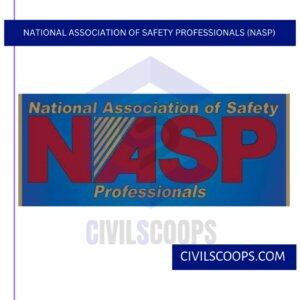
NASP is a technical credential that covers the complexities of becoming a safety professional and moves beyond OSHA expectations and qualifications.
Furthermore, the NASP has four services to provide participants with the information and strategies they need to reduce job-related accidents and focus on the worker dynamic on the job site.
7.1. Certified Safety Manager (CSM) :
Persons with this credential will work with little to no oversight when overseeing protection systems, processes, and regulations about any popular enterprise.
Attendees throughout this program will gain knowledge of the following topics: How to prevent civil/criminal responsibility, interpret rules, boost staff morale, including, more significantly, reduce occupational accidents.
7.2. Certified Safety Manager Construction (CSMC):
The CSMC is comparable to the CSM, but somehow it differs in that it is a construction credential that supervises various contractors, offers competent training, and implements necessary plans and services for the construction sector.
7.3. CSD (Certified Safety Director):
A CSD-certified professional is able to create and manage a robust corporate or facility-wide protection policy. This credential is “stand-alone,” but NASP has a process design process; each level completed brings you one inch ahead to a higher level.
7.4. Licensed Safety Professional (LSP):
This has been the most coveted certification offered by the NASP because it demonstrates the highest degree of aptitude. Individuals that have LSP have clout over top managers and legislators.
8. National Center for Construction Education & Research (NCCER)
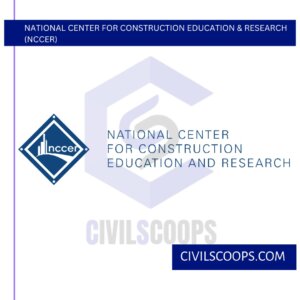
There are around 70 art fields to pick from in NCCER certifications, ranging from entry-level to high-level qualifications. The National Craft Assessment and Certification Program (NCACP) and the Pipeline Training and Assessment Program are also part of NCCER.
Alternative fuels, boiler manufacturing, concrete finishing, building technology, electrical, and so on are examples of art and title certifications.
9. National Institute for Certification in Engineering Technologies (NICET)
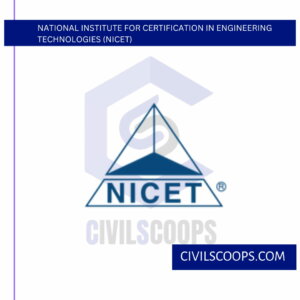
Civil engineering, as well as electrical and mechanical process engineering, are covered by NICET certifications.
More employers and municipal councils are now relying on NICET qualifications to assess the productivity and performance of their workforce/job location.
NICET offers two types of credential programs:
9.1. Technician Certification Program:
Civil engineering technology; testing of construction materials and transportation Inspection of the construction site.
Electrical and mechanical systems engineering programs include electrical power, fire control, and security systems.
9.2. Technologist Certification Program:
Technologist Certification needs a 4-year engineering technology degree.
Also Read: What Is Hardened Concrete | Properties of Hardened Concrete
10. National Association of Corrosion Engineers (NACE)
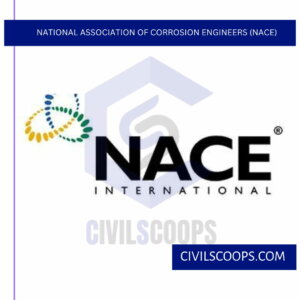
The NACE International Institute (NII) is well-known for its world-class certification services. They manage 23 licensing schemes covering a wide range of approaches and procedures.
Many that work with NII is part of a network of trustworthy accredited experts who help to protect people and the world from uncontrollable corrosion acts.
Furthermore, the trained candidate is licensed and motivated to complete the job correctly and on schedule. The NII systems match them with industry norms and best practices, elevating them to a position of prominence within the corrosion industry.
[su_box title=”FAQ” style=”default” box_color=”#333333″ title_color=”#FFFFFF” radius=”3″ class=”” id=””]
What Certifications Should I Get for Construction?
8 construction certifications
- Certified Construction Manager (CCM)
- Associate Constructor (AC)
- Certified Professional Constructor (CPC)
- LEED Green Associate
- Project Management Professional (PMP)
- Certified Safety Manager (CSM)
- Residential Concrete Foundation Technician
- Occupational Safety and Health Administration (OSHA)
What Is a Construction Certificate?
Before you start any building or construction work, you’ll need to apply for a construction certificate (CC). This certificate confirms that the construction plans and development specifications are consistent with the development consent, and comply with the Building Code and any other council requirements.
What Can I Do with a Construction Management Certificate?
Construction managers might decide to work on civil engineering projects or residential or commercial construction. Many of these management experts are self-employed, while others work at specialty contractor businesses.
Is a Construction Management Certificate Worth It?
YES! Earning a construction management certificate will equip you with the skills, strategies, and insights needed to be successful in a career as a construction project manager.
How to Become a Certified Construction Project Manager?
- Achieve the required degree and/or construction work experience (see below)
- Apply for the CMAA-accredited CCM accreditation here.
- Prepare for the examination.
- Pass the examination.
What Is the Difference Between Construction Management and Project Management?
Construction management is the overall planning, coordination, and control of the construction process from start to finish. The objectives of project management are to create a project that meets the client’s requirements in terms of budget and schedule, as well as acceptable risk, quality, and safety.
Which Country Is Best for Ms in Construction Management?
- Construction Management in the USA.
- Construction Management in the UK.
- Construction Management in Ireland.
- Construction Management in Australia.
Is Construction Management a Good Career?
Construction companies are likely to always have a demand for managers, and increasing populations and federal requirements for updating buildings lead to a consistent need for construction companies, meaning the position comes with good job security.
What Is Pmi in Project Management?
The Project Management Institute is a U.S.-based not-for-profit professional organization for project management.
Is the Project Management Institute Accredited?
The Project Management Institute (PMI) is the world’s leading professional membership association for project, portfolio, and program managers. Its Global Accreditation Center (GAC) accredits project management and related management degree programs offered within higher education institutions worldwide.
How Many Certified Safety Professionals Are There?
BCSP now has over 45,000 active credentials, an increase of greater than 17,000 since 2012.
Is National Association of Safety Professionals Accredited?
NASP is accredited by the ANSI National Accreditation Board (ANAB) for the Certified Safety Director and Master Safety Professional credentials, under the ISO/IEC 17024:2012 Standard, General Requirements for Bodies Operating Certification of Persons.
The National Center for Construction Education and Research
The National Center for Construction Education and Research, commonly referred to by the acronym NCCER, is a not-for-profit 501 education foundation for professional craft certification, formed in 1996.
What Are the Different Types of Contractors Licenses?
- Class A for engineering contractors.
- Class B for General Contractors.
- Class C for specialty and subcontractors.
Is Pmp Worth It for Construction?
The credential is significant for construction managers as it offers you the basic potentials need to generate outcomes and lead teams. PMP for construction management is significant as the projects in this field are generally massive and challenging.
[/su_box]
[su_note note_color=”#F2F2F2 ” text_color=”#333333″ radius=”3″ class=”” id=””]
Like this post? Share it with your friends!
Suggested Read –
- What Is Bamboo Flooring | Bamboo Flooring Pros and Cons
- What Is Hardened Concrete | Properties of Hardened Concrete
- What Are Hollow Bricks | Advantage of Hollow Bricks | Disadvantage of Hollow Bricks | Sizes of Bricks Blocks | How to Make Hollow Bricks
- All About Retrofitting | What Is Retrofitting | Why Need Retrofitting | Advantages And Disadvantages of Retrofitting of Building
- What Is Fire Escape Staircases | Types of Fire Escaping Stairs | What Is the Importance of Fire Escape in the Building | What Are the Fire Staircase Requirements
[/su_note]
Originally posted 2023-03-13 10:41:08.
